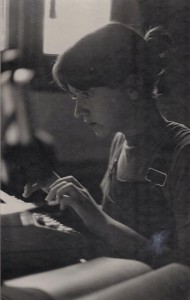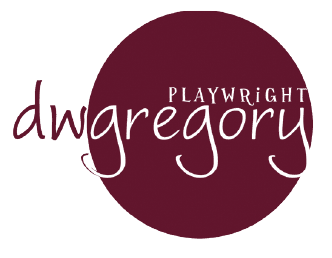
Eric Barker asks us to consider whether we are more creative when forced to work – or whether we ought to wait until inspiration strikes.
Citing Daniel Akst’s book Temptation: Finding Self-Control in an Age of Excess, he concludes that pressure to produce actually results in productivity.
No surprise to me—I’ve long known that setting a specific schedule to write almost always ensures that I, in fact, write. The trick is making writing a priority over all other competing interests—some of them compelling interests, such as the need to go to my day job and actually earn the living that supports my playwriting habit.
But what to do when the juices don’t flow? Stare at a blank piece of paper?
As a founding member of The Playwrights Gymnasium, a process oriented workshop in Washington, D.C., I assure you there are many ways around writer’s block. And in this weekly feature, I intend to share some of those tricks with you.
Some of this material has been tested in the gym and some will be brand stuff that I will impose on myself as I set out to write several new plays.
A playwright I met in passing once observed to me (Ed Baker is his name) that “there is no such thing as writer’s block. There is only character block.” So if you take the time to get to know your characters, you will find that the sense of being stuck fades away.
One pitfall for a lot of writers who are entirely focused on product is that they don’t see a lot of value in exploratory writing, particularly when it comes to exploratory scenes. But for me, I find discovery in exploration. In fact, I often find that when I’m stumped about a character or a scene, the way to answer is not to decide ahead of time what must happen, but to pose a question and write a scene around it – and by that I mean two, three, four pages or dialogue.
I came to the ending of The Good Daughter in Just This Way. The unanswered question through multiple drafts of the play was “why does Cassie return to her home after so many years away?” Not to give away the ending—because it’s a lovely bomb that drops on the audience and I don’t want to detonate it here—but the answer came to me when I was simply writing an exploratory version of the final scene, where the rebellious daughter and patriarchal father are trapped amid rising floodwaters. Boom! Out of my subconscious came the words – and with the words the discovery that it was absolutely the right and reasonable choice, and because of it, I now had to go back and revisit the entire second act through the lens of this new understanding of her dilemma.
I have discovered that this is the way I have to work – and I think there is value in it because when I can surprise myself in writing a play, then I know I can also surprise my audience.
So here now is an exercise that I’ve used in the past to get started on a new play.
Five Questions
Let me note that this is borrowed from Marsha Norman, who says that this a great way to eliminate bad ideas. Because when you do this in a group of 20 people, then you go around the room and hear the results, it becomes immediately clear which stories are compelling and which are not.
Fill in these blanks:
- This is a play about _____.
- It takes place _____.
- The main character wants _____ but _____
- It starts when __________
- It ends when __________.
For example:
- This is a play about a prince who is forced to seek revenge when his father is murdered by his uncle.
- It takes place at Elsinore castle, the court of the late King and the current King Claudius.
- The main character wants to avenge his father’s death but he must first be sure of his uncle’s guilt and whether his mother had any part in it.
- It starts when the ghost of the murdered king appears to some frightened footsoldiers.
- It ends when the prince kills his uncle and is himself killed in the process.
Answering these questions can help you begin to articulate the arc of the story and may reveal thematic concerns. Then you can refine your answers, adding more detail as you go to help get a stronger sense of the story. It isn’t just the plot points that count here—the what happens, but the why it happens, which is really what distinguishes any one story from another.
What makes Hamlet more than a mere murder mystery?
That’s a question I’ll wrestle with in a future post.
But just for fun—and because the answers come to me through exploratory scenes, the exercise does not end with answering five questions. The second part is to write the opening moments of the play – and having written it, revisit the five questions.
I’ll tackle my assignment for myself and report on the results next week.
